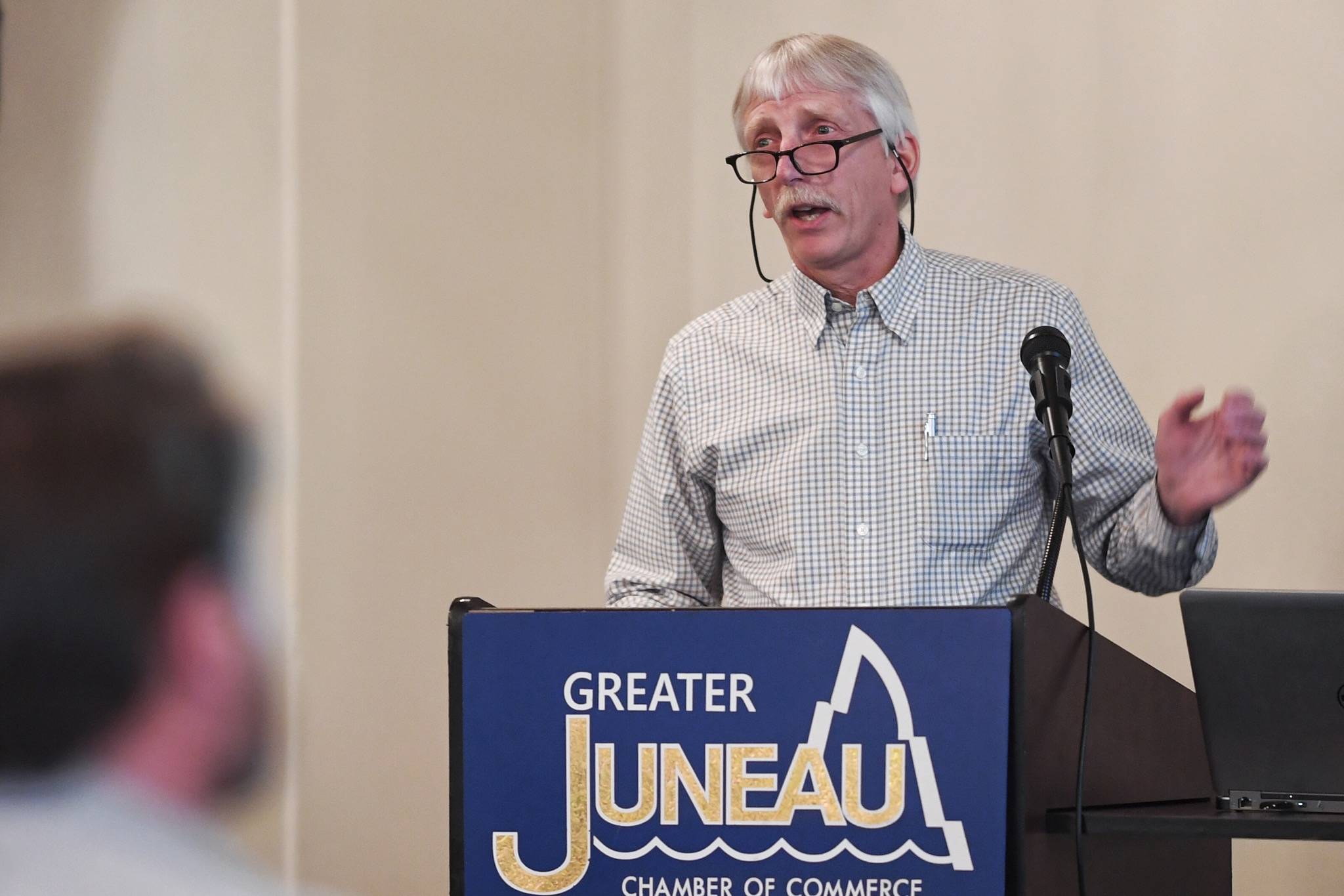Summary:City and Borough of Juneau is in a stable to strong financial situation, said Finance Director Bob Bartholomew, but it may need to reduce spending in the near future for its budget to remain sustainable. The city is continuing to explore moving City Hall, and City Manager Rorie Watt presented the idea of moving it to the top two floors of a parking garage.
1 p.m.
Watt said building on flat land in the Willoughby District would cost about $28 million because land would need to be purchased and a foundation would need to be built.
Neither of those expenses are necessary with the parking garage concept.
Additionally, Watt said utilizing the former Walmart building doesn’t make much sense on paper because of the cost of acquiring the building and its size.
However, he said both ideas would be analyzed, public input would be considered and nothing has been decided.
“I’m trying to convince you that what we’re doing know doesn’t make sense,” Watt said. “I’m trying to convince you that we should put some time into this.”
12:50 p.m.
The city manager is getting his turn at the lectern.
He is discussing a proposed plan to move the CBJ City Hall to the top two floors of a parking garage on Main Street. The move would be expected to cost about $26.7 million.
Watt said the city spends about $750,000 per year on renting property downtown across a number of buildings.
“It’s not efficient what we do,” Watt said.
An additional 60 spaces could be added to the transit center in addition to two floors of office space for an additional $3.3 million, Watt said.
It would take about 30 years to pay off the building, Watt said. He acknowledged that’s a long time, but the city will exist more than 30 years into the future.
“When you plan to be in business forever, you should own your own building,” Watt said.
12:40 p.m.
In October 2012, the Assembly passed a resolution establishing a “restricted” budget reserve, which requires a plan to pay back the reserve if funds are used.
The balance of that reserve is currently $16.2 million. It was $15.8 in 2018, $14.8 million in 2017, $13.4 million in 2016.
“It’s at a level that we’re comfortable it’s what we need for this size of community,” Bartholomew said.
There is also an available savings fund balance. It’s projected to be at $16.2 million at the end of fiscal year 2019 and at $14.8 million in fy 2020.
That is because the budget that is slated to be considered by the Assembly will use some of those savings to provide services.
“It’s a safe number,” Bartholomew.
12:30 p.m.
In each of the next three year, the city anticipates a 1-percent uptick in revenue.
Bartholomew said tourism, fishing and mining make that seem to be a fairly safe projection, but there is a degree of uncertainty.
“What is the effect on the economy from the state budget, and that’s the part where we’re projecting 1-percent revenue growth…but what’s going to happen with state government, with state jobs with investment in Alaska,” Bartholomew said.
From a slide Bartholomew presented: the city spent $408.76 million on capital projects over the past five fiscal years.
The largest two areas of expense were the airport at about $88.66 million and port at $89.3 million.
Last year $58.37 million was spent on capital projects.
12:20 p.m.
“Our current financial situation is we’re stable, and some would say strong,” Bartholomew said.
However, he said revenues may be peaking, and the city’s expenses may be unsustainable.
But revenue and reserves are strong, Bartholomew said.
12:10 p.m.
City Finance Director Bob Bartholomew and City Manager Rorie Watt will speak at today’s Greater Juneau Chamber of Commerce luncheon.
Despite uncertainty regarding what the state will do next, the city is well into its budget-making process and is also poised to make a decision on its mill rate soon, which will impact property taxes.
Updates on the city’s financial picture are expected.

